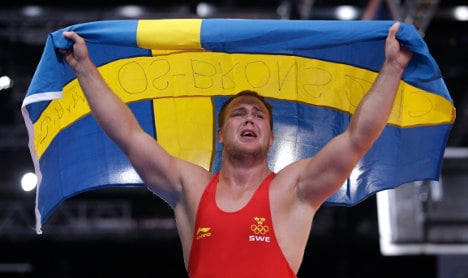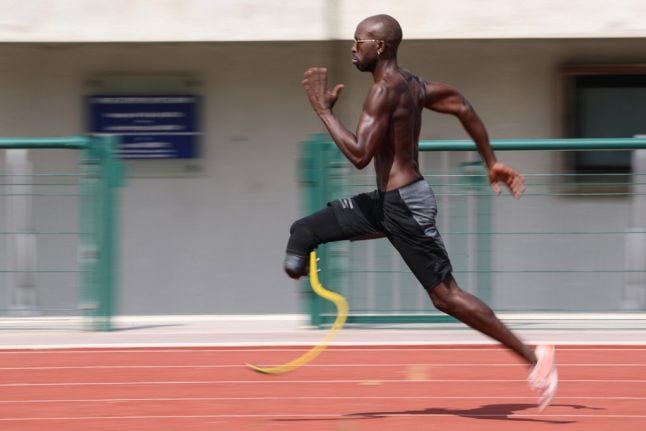Lidberg, who won against Belarussian Tsimafei Dzeinitjenka, celebrated by jumping into the crowd and hugging his wife.
“After the season that I’ve had this bronze is like ten golds for me,” 30-year-old Lidberg told the Dagens Nyheter newspaper (DN).
“I didn’t even know if I would be able to start one week ago.”
However, the road to the bronze was not without complication, with the Swede’s semi-final match against Russian Rustam Totrov including a ruling that the Swedish team appealed to no avail.
A point was deducted from Lidberg and given to the Russian, however the Swedish team is putting it behind them now following the bronze win.
“Now we can forget all the fuss in the Totrov match,” said coach Benni Ljungbäck to DN.
Lidberg, from Farsta in eastern Sweden, has been wrestling since the age of five and claims on his website that he was born to wrestle.
“I was already a big one in baby measurements, I weighed 4.8kg and I was 56cm tall.”
The gold medal in the event was snagged by Iranian Ghasem Gholamreza Rezaei with Russian Rustam Totrov taking the silver. The other bronze was won by Armenian Artur Aleksanyan.
The medal marks Sweden’s third bronze in the summer games, and Sweden’s seventh medal overall – leaving the country in 30th place.
TT/The Local/og





 Please whitelist us to continue reading.
Please whitelist us to continue reading.
Member comments